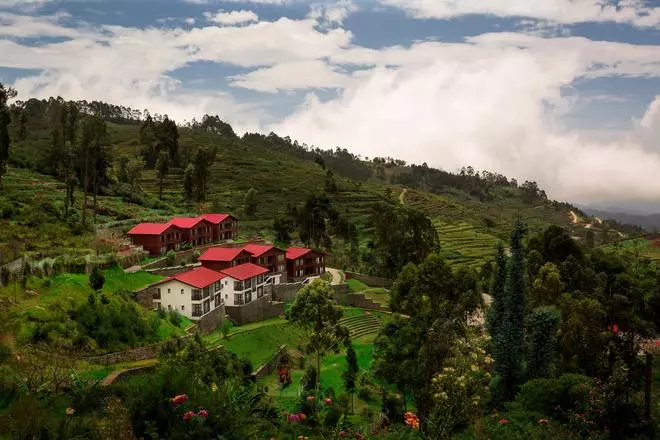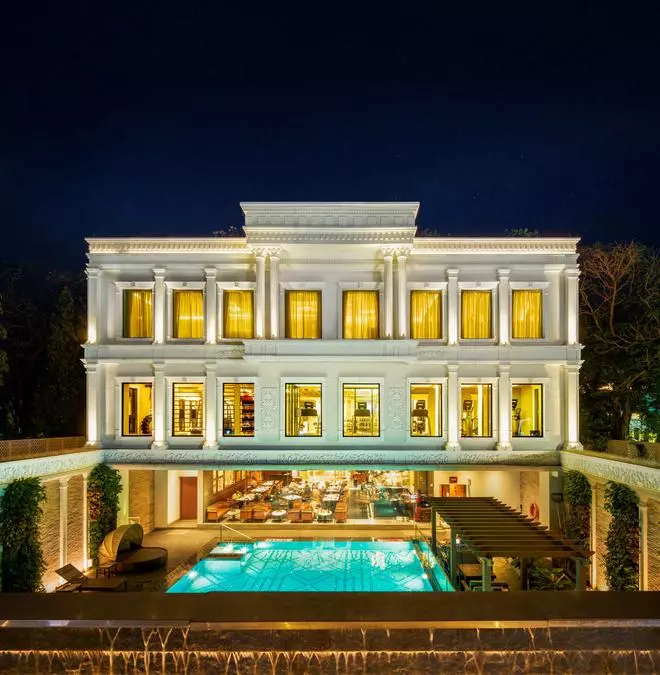For India’s hospitality sector, 2024 was a great year. Average occupancy rate was high, rates picked up, and several hotel chains went from recovery to re-invention mode to cash in on the boom triggered by the return of tourists. The nightmarish Covid period was well in the past.
An ebullient Vikram Cotah, CEO, GRT Hotels & Resorts, says the southern chain outpaced the industry’s growth — it clocked an impressive 72 per cent occupancy in the first half of the year, versus the industry average of 65 per cent. “We’ve seen strong growth this year. The first half of this fiscal was solid, even with a quieter market due to the April and May elections. The second half looks even stronger, with a projected 30 per cent growth (conservative estimate), driven by strong bookings and a busy wedding season,” Cotah says.
He adds, “Our leisure segment is thriving, with our properties generating five-figure yields exceeding ₹10,000.”
Growth plans
Propelled by the strong showing, GRT Hotels & Resorts has drawn up an ambitious blueprint for expansion beyond its comfort zone. It plans to enter new markets both in India and internationally, as also new segments. It will launch a homestay brand, explore the midscale category, and focus on spiritual tourism.

GReaT trails Kodaikanal by GRT Hotels
So far, the chain — founded in 1998 and part of the GR Thanga Maligai jewellery group — has had a footprint only in the south. Its 22 hotels — mostly in the upscale and luxury bracket — are spread across Tamil Nadu, Karnataka, Kerala, Andhra Pradesh, and Telangana.
Now it has bigger plans, having secured land in locations like the Andaman islands, Ayodhya, and Varanasi, where it plans to launch soon. It is also eyeing metro cities like Mumbai and Delhi, which entail high costs but promise to significantly boost visibility and facilitate entry into nearby regions like Pune.
The chain will also launch its first international property — a 70-unit ultra-luxury leisure resort — in the Maldives within 2-3 years.
Says Cotah, “Maldives with its scale and global appeal is the ideal location for our first international venture.”
Saturating the south
Alongside targeting wider expansion, GRT Hotels’ strategy is to saturate the south.
With resorts in Kodaikanal, Yercaud, Wayanad, Mamallapuram, and Puducherry seeing surging demand during peak holiday season, the company wants to ride the leisure boom with more properties in scenic locales, such as its upcoming ultra-luxury property in Pachalur, nestled in a 750-acre coffee estate near Kodaikanal.

Radisson Blu Resort Temple Bay, Mamallapuram
To capitalise on the rising demand for weekend getaways, it is exploring opportunities in Coorg, Mysuru, and Yelagiri.
Post Covid, it is focusing more on domestic tourists, with heavy investments in local marketing channels and customised hotel designs suited to the preferences of Indian families.
New offerings include interconnected rooms, Indian food buffets, and private dining spaces.
“We initially focused on attracting international guests, but post-Covid we realised that the domestic market could meet our needs if we served it well,” explains Cotah.
In the coming months, GRT will open two new properties in Tamil Nadu: a 51-room vegetarian hotel in the pilgrim centre Thirukkadaiyur; and a renovated property in Kumbakonam, geared for spiritual tourism.
Segmented strategy
Spotting diverse opportunities in various segments, GRT has adopted a multi-brand approach. For business travellers, it has Grand by GRT Hotels, Regency by GRT Hotels, and Zibe by GRT Hotels; for leisure seekers it operates GReaT Trails by GRT Hotels.

Radisson Hotel and Suites GRT Chennai
It is making inroads into Tier 2 and 3 cities like Madurai and Kanchipuram with smaller properties of 100-120 rooms, capitalising on lower real estate costs and other expenses.
Cotah sees the mid-scale segment as a golden opportunity. “The middle class is becoming more aspirational, willing to spend on better experiences. They emphasise security, quality food, and overall value.”
Its homestay brand targets catering to evolving post-pandemic travel trends. “Families now prefer renting entire homes for a more intimate, personalised experience — where they can enjoy the privacy of a home, choose their own meals, and feel truly at ease,” says Cotah. The homestay brand, emphasising cultural immersion and local cuisine, will debut with a 14-room property in Kodaikanal near the lake. Other locations such as Chettinad are under consideration.
In temple towns like Tirupati/Tirumala, GRT is following an interesting strategy — tapping under-utilised guest houses to run its hospitality business.
Traditionally focused on operating owned properties, including greenfield and brownfield projects, the company is now exploring asset-light ventures, including the Grand Madurai Hotel and its Vijayawada property.
Additionally, GRT has forged a partnership with Radisson, managing four properties across Mamallapuram, Puducherry, Chennai, and Bengaluru.
The goal is to run 50 hotels by 2034, up from 25 in 2025. So far, GRT Hotels has had a debt-free model, funding its expansion through internal accruals. In fiscal year 2024, GRT had revenues of over ₹500 crore, with positive EBITDA margins. The target is to double the revenues within a decade.
Analysts say the hotel industry is currently on a good wicket. According to Elara Securities, “Expect hotel companies to post 15-20 per cent growth in revenue per available room (RevPAR). ARR (annual recurring revenue) growth has been visible across business and leisure destinations.”
But the industry tends to be cyclical. As GRT goes about adding more keys, it would do well to bear that in mind too.








Leave a Comment